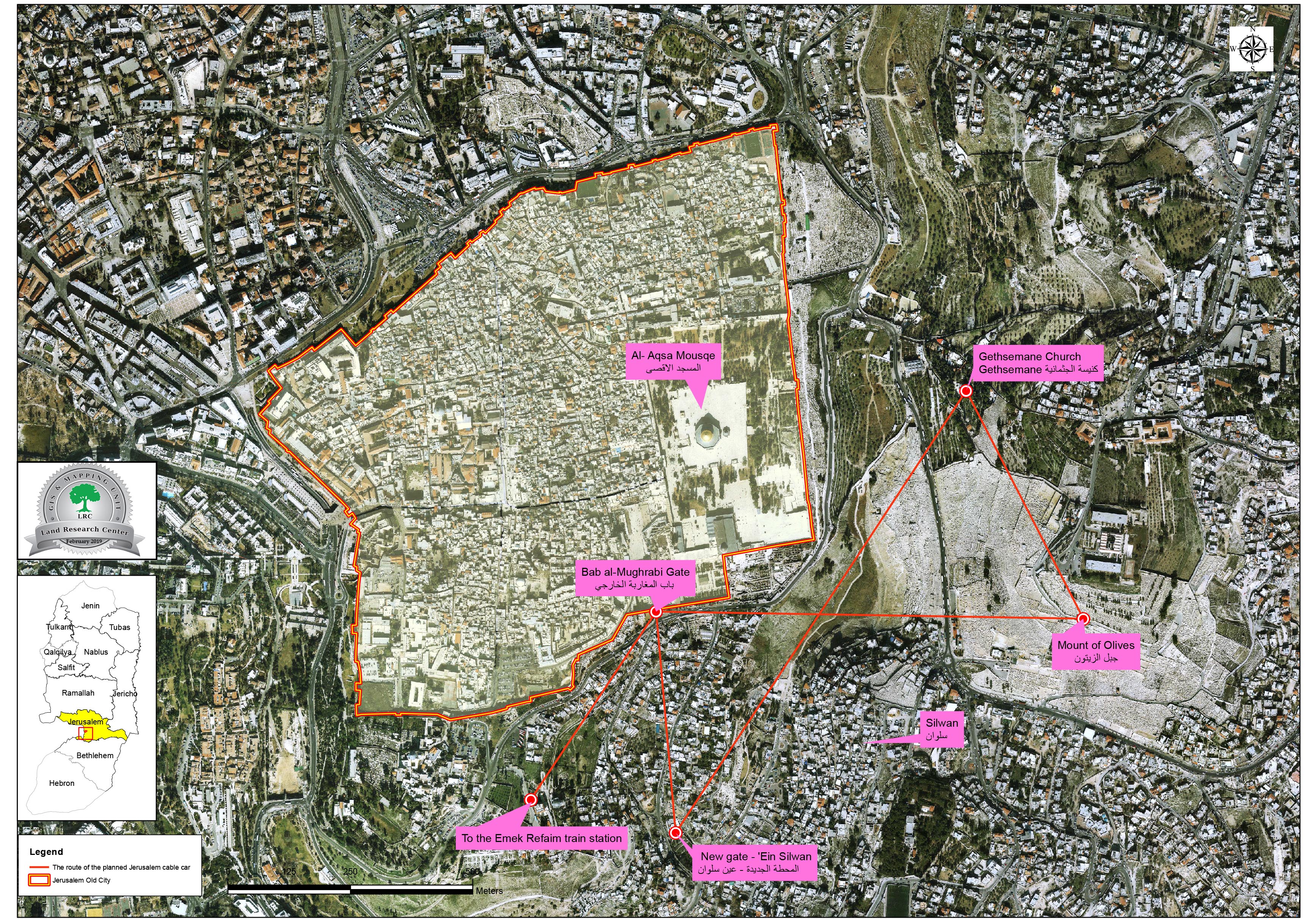Related
Israel to install new tourist cable car through occupied Jerusalem
In the first of February 2019, Israeli revealed a new plan to install cable cars that connect an old railway station west Jerusalem to the old city in east Jerusalem.
The so called Jerusalem’s development authority which immerged from the Israeli Ministry of Tourism presented the 200 million shekels project, and the Israeli authorities approved.
The project will be implemented by a foreign company, the ministry of tourism refused to reveal the company’s name to avoid BDS campaigns. Many foreign companies canceled projects deals in the occupied city after BDS campaigns and pressures from the international community.
Unlike other projects, this one was assigned to the Infrastructure committee, and the committee gave 60 days as a period for objections.
The cable cars will travel from the western side of Jerusalem to the eastern area, traversing 1.5 kilometer and will stop in 3 stations, the first one in Mount of Olives, the second one is in the Burq Wall area, the Third one is close to Mount Zion. There will be 73 cable cars , each one has a capacity for 10 persons.
The responsible on the projects said that it is essential and will facilitate settlers’ movement to east Jerusalem , and one of its most important assets, that cable cars will transport number of passengers in a relatively short time.
Noteworthy, Ir David the Israeli bro settlement NGO is a partner in the project. On the other hand, it is also worth mentioning that several Israeli Human Rights organization objected on the project considering it a move will change the historical identity of Jerusalem and anger Palestinians and much of the International community.
Israel’s Judaization activities in Jerusalem city are non-stop, this is only one of Israeli Judaiztaion plans implemented in Jerusalem, another one of them is Davidson museum south Al-Aqsa mosque, and Strauss group in Buraq wall area, other than Israeli scheme that target whole Palestinian communities blocs such as Al-Bustan and Wad Al-Hilweh neighborhoods that face Judaization.
Legal Feedback:
The Security Council, Reaffirming its relevant resolutions, including resolutions 242 (1967), 252 (1968), 267 (1969), 298 (1971), 338 (1973), 446 (1979), 465 (1980), 476 (1980), 478 (1980), and 2334 (2016),
1. Affirms that any decisions and actions which purport to have altered, the character, status or demographic composition of the Holy City of Jerusalem have no legal effect, are null and void and must be rescinded in compliance with relevant resolutions of the Security Council, and in this regard, calls upon all States to refrain from the establishment of diplomatic missions in the Holy City of Jerusalem, pursuant to resolution 478 (1980) of the Security Council;
2. Demands that all States comply with Security Council resolutions regarding the Holy City of Jerusalem, and not to recognize any actions or measures contrary to those resolutions;



